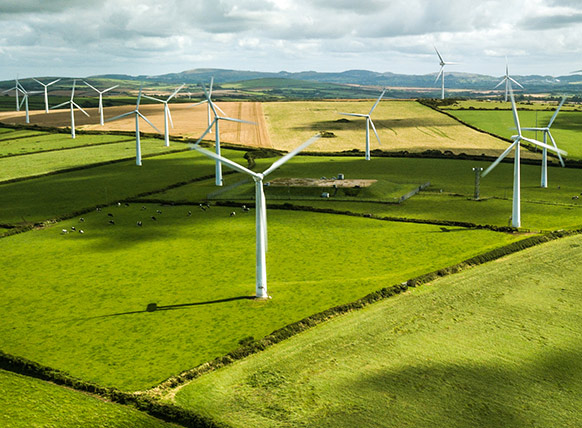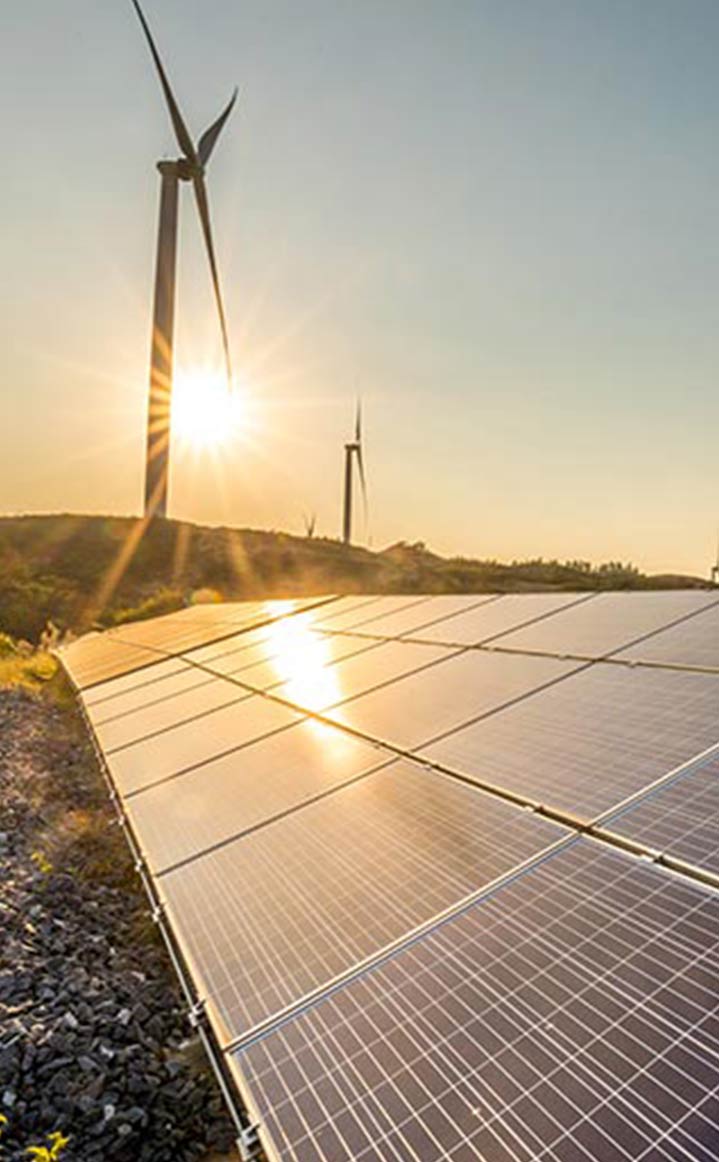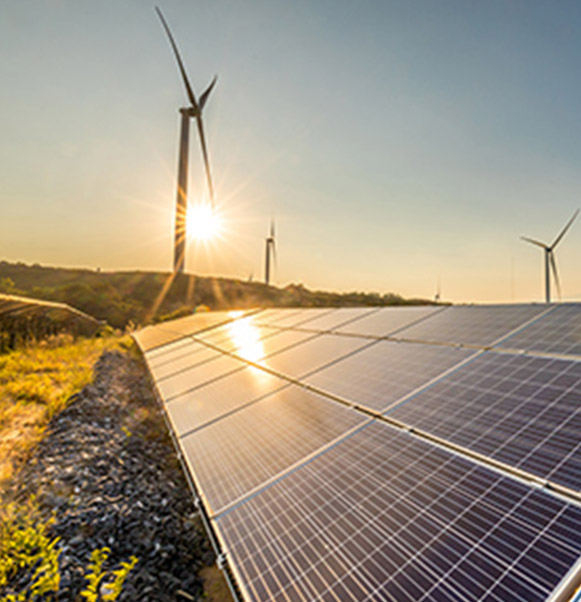

Why renewable energy is good for you and the environment


It’s not uncommon to feel overwhelmed in a crisis, maybe even unable to act. The climate crisis has the potential to create exactly that kind of scenario for all of us as individuals. The good news is, together as a society, we have answers.
Better still, many of the solutions to the problem are relatively simple and call for small changes at home and in our lifestyles to bring about a big collective benefit. And, according to our recent research1, four in five (80%) people agree that if we all help tackle climate change, collectively we can make a positive difference.
But this is not ‘old-school’ eco. Gone are the days when going green meant making huge personal sacrifices and doing without. Climate action can actually feel good.
The problem of fossil fuels
Burning fossil fuels, such as natural gas, oil or coal to produce energy, has the environmentally unsustainable effect of releasing greenhouse gases (GHGs) including carbon emissions into the atmosphere.
GHGs are the main cause of human-induced climate change and global warming2. They are the driving force behind the rise in such extreme weather events as the catastrophic heatwaves in Canada and the USA this year3, or the tragic flooding in Germany4.
In fact, a climate emergency has officially been declared in over 2,000 jurisdictions, across 34 countries worldwide – including the UK5.


The renewables solution
But there is a better alternative to fossil fuels. We can seize the advantages of energy generated from renewable sources — such as wind and solar, tidal, wave and hydroelectric, or bioenergy, plus some forms of hydrogen.
So, here at E.ON, we’re taking climate action alongside our customers — by committing to becoming carbon neutral by 2040, plus offering sustainable solutions— to support you in the energy transition and help the UK meet our net zero by 2050 targets.
E.ON has been a driving force behind the renewables revolution in the UK for 30 years, leading the switch from coal to renewables and investing billions into renewable energy projects across the country.
We already provide all our customers’ homes with 100% renewable electricity6, sourced from our own renewable generation assets, as well as supply agreements with independent UK wind generators and the purchase of renewable electricity certificates. What's more, we’re doing so at no extra cost to our customers and as standard.
And at E.ON Next, the newest face of E.ON for our energy customers, we’re going one step further with innovative new tariffs such as Climate+, which as well as providing 100% renewables-backed electricity6, offsets the carbon emissions associated with our customers' gas use.
Even better, to support reforestation of the Amazon rainforest, E.ON Next will also plant five new trees, through the charity One Tree Planted, for every customer who signs up to Climate+.


Smart energy
As well as choosing renewable electricity, there are many more ways we can all make our home more sustainable, reduce our carbon footprint and so help tackle climate change.
At the bigger end of the scale, this could mean generating your own renewable power — through a combination of solar panels and battery storage or heat pumps.
Other more readily manageable options might include upgrading old and inefficient technology — such as your boiler, light bulbs and insulation. And installing a smart meter and smart thermostat can also help you understand and manage your energy consumption, while you begin tackling those hot spots for heat loss.
Sustainable lifestyle choices
Our research1 revealed that almost half of people (49%) say that every sustainable action, big or small, should be praised.
And it’s often these small changes to living a sustainable life that carry additional, often unseen, benefits for your overall energy consumption and carbon footprint. For instance, it’s important to find ways to reduce the total amount of waste you produce.
- Consider going paperless with bills, donating unused clothes to charity and opting for refillable containers when buying regular items like shampoo.
- Reuse items whenever possible, taking shopping bags and travel cups with you to avoid single-use plastic bags and disposable coffee cups.
- Having reduced and reused whatever you can, try to recycle as much as possible of anything left. And why not start home-composting your food and garden waste too?
- Using water more responsibly, by taking shorter showers, for example, or washing your clothes on a full load at 30°C, can save energy too — helping reduce your bills and carbon footprint.
These minor adjustments to your daily routine not only minimise waste, but also help save on the raw materials consumed in making products in the first place, as well as the energy needed for their production and then disposal at end-of-use. Cutting your waste is therefore a win-win for the circular economy and the climate.
And many of us are already taking steps towards being more sustainable. When asked about being sustainable in their daily lives, our research shows that people are taking action in areas including:
- Recycling (70%)
- Taking their own bags when shopping (66%)
- Switching lights off when not in use (66%)
- Minimising food waste (61%)
- Only using energy efficient light bulbs (54%)
- Turning off/unplugging appliances when not in use (53%)
- Using reusable cups and avoiding single use plastic (45%)
- Walking/cycling instead of driving (44%)
- Buying energy efficient appliances (42%)
- Only heating rooms that are in use (36%)


Electric highway
Last, but by no means least, there is the matter of transport and mobility – we can make more sustainable choices by simply walking, cycling and using public transport to help cut our carbon footprint.
Ultimately, of course, with the impending ban on all sales of new petrol and diesel cars coming into force in 20306, electric vehicles (EVs) are destined to become the new normal for Brits — which will mean rising clean and green power demands for charging cars at home, as well as at work, in town and on the move.
All of this shows how energy today is so much more than just something we need to turn on the lights — it’s woven throughout our daily, family lives — which is why making sure it comes from renewable sources is so important.
1. Survey of 2,000 respondents carried out on behalf of E.ON by 72Point in July/August 2021.
2. Met Office: Causes of climate change
3. BBC News: Climate change: US-Canada heatwave 'virtually impossible' without warming
4. The Guardian: Climate scientists shocked by scale of floods in Germany
5. Climate Emergency Declaration: Climate emergency declarations in 2,007 jurisdictions and local governments cover 1 billion citizensv
6. Electricity backed by 100% renewable sources. Electricity sourced from E.ON's renewable assets, agreements with independent UK generators and the purchase of renewable electricity certificates. The electricity supplied to your home comes from the National Grid. Find out more at eonenergy.com/renewable
7. Gov.uk: Government takes historic step towards net-zero with end of sale of new petrol and diesel cars by 2030


Our blog
Read our latest blogs to discover how E.ON is leading the energy transition through smart and sustainable solutions.


It's time to clear the air
Towns and cities across the UK are suffering from illegal levels of air pollution. We think it’s time to do something about it.


The advantages of renewable energy sources
Discover a list of advantages of renewable energy, types of renewable energy sources and how we’re working towards a sustainable future.
